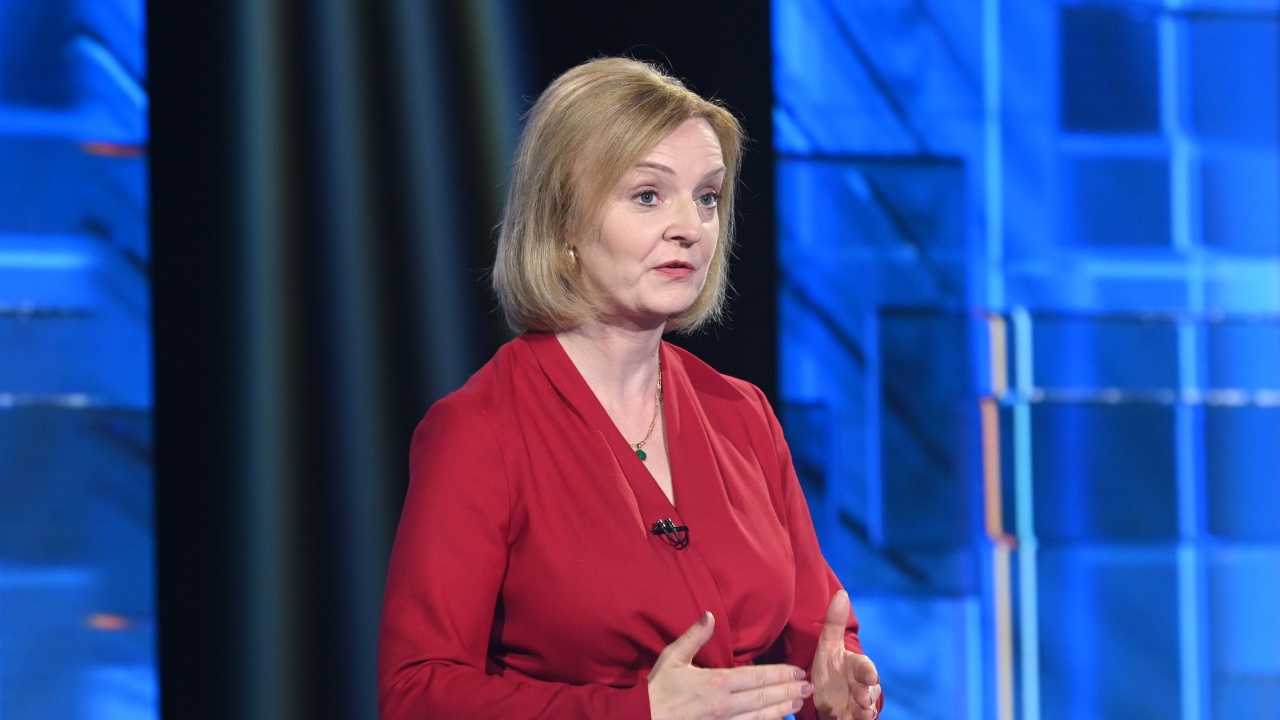Listen to the news
Liz Truss fans believe she is the new Iron Lady. Britain's foreign secretary is one of two remaining possible contenders to replace Boris Johnson as leader of the Conservative Party and prime minister. About 180,000 party members will be asked to choose Truss or former finance minister Rishi Sunak, with the winner to be announced on September 5, the Associated Press reported, citing BTA.
If Truss wins, she will become Britain's third female prime minister.
She built her image in honor of the first British Prime Minister - Margaret Thatcher.
Trot poses in a British Army tank in Eastern Europe, evoking footage of Thatcher during the Cold War.
During a televised leadership debate this week, Britain's first female diplomat wore a turtleneck blouse, known as a lavalier collar, that looked eerily similar to those worn by the late prime minister.
Truss, 46, is a favorite of many conservatives, who revere Thatcher above all other leaders.
Critics, however, say Truss's efforts to be likened to Thatcher are futile and believe the foreign secretary lacks the seriousness and dignity needed to lead the country amid economic turmoil and war in Europe.
As foreign minister, Truss spearheaded British support for Ukraine and Western sanctions against Russia over its invasion of the neighboring country.
It was also central to the UK's dispute with the European Union over post-Brexit trade deals.
Her combative approach - along with her promises to cut taxes and increase defense spending - made her a favorite of the party's highly Eurosceptic right wing.
In an article for The Daily Telegraph, Truss said she was "the only person who can bring about the change we need in the economy, in line with true Conservative principles, and is the only person capable of strengthening and lead the response to what is happening in Ukraine and to the heightened security threat facing the free world."
But her opponents call her a dogmatist and a stiff speaker and note that she was not always a true conservative.
Born in Oxford in 1975, Liz Truss is the daughter of a maths professor and a nurse, who as a child took her to protests against nuclear power and against Thatcher, where she remembers shouting: "Maggie, Maggie, Maggie - out, out, out!'
Truss attended a state grammar school in Leeds, northern England, and then studied philosophy, politics and economics at Oxford University, where he was briefly part of the centrist Liberal Democrats and called for the abolition of the monarchy.
He worked as an economist at the energy giant Shell and the telecommunications company Cable & Wireless, as well as a centre-right think tank, while also becoming involved in Conservative Party politics and coming to espouse Thatcher's views on the free market.
She ran unsuccessfully for Parliament twice before being elected to represent South West Norfolk, in East Anglia, in 2010.
The battle for Downing Street is entering its decisive phase
Truss is married to Hugh O'Leary, with whom she has two teenage daughters.
In the 2016 referendum on Britain's exit from the European Union, Truss backed the losing party to "remain".
But she served in Johnson's staunchly pro-Brexit government as trade secretary and then as foreign secretary, and won the support of the staunchest Brexiteers in the Conservative Party.
The results of her work as foreign minister caused mixed reviews.
Many have praised her tough response to the invasion of Ukraine and securing the release of two British citizens held in Iran, something her predecessors failed to do.
But EU leaders and officials who had hoped she would take a softer tone in the UK's relationship with the bloc have been disappointed.
Tim Bale, professor of politics at Queen Mary University of London, says the fact that Eurosceptics adore Truss while suspecting Sunak of pro-EU views - despite the fact that he backed "Leave" in the referendum - shows the importance of image over substance in politics.
"His image doesn't match that of the Brexiteers, while hers does," says Bale.
"There's a presumption that if you're somewhat of a soft-spoken person who's at home in international circles, you must be a person for Britain to stay in the EU, and if you're someone who tells foreigners the way things are, then you're obviously a (real) Brexiteer".
Great Britain
Liz Truss
